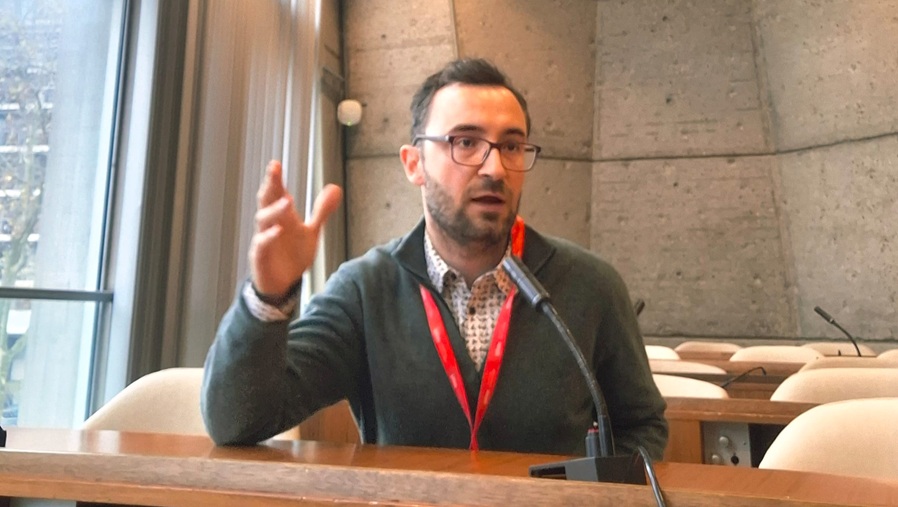Dr. Álvaro Fernández-Llamazares at first author meeting of 2nd IPBES Global Assessment
ICTA-UAB researcher Dr. Álvaro Fernández-Llamazares is among the 117 leading global scientists selected by the Intergovernmental Science-Policy Platform on Biodiversity and Ecosystem Services (IPBES) who are meeting in Paris this week for the first author session of the 2nd Global Assessment on Biodiversity and Ecosystem Services.

The meeting at UNESCO in Paris will mark the beginning of a vital new and authoritative multi-year assessment of the state of knowledge about global biodiversity and nature’s contributions to people.
As lead author of Chapter 2, “Diverse Knowledge Systems and the Role of Indigenous Peoples and Local Communities,” Dr. Álvaro Fernández-Llamazares will highlight how Indigenous and local knowledge contributes to biodiversity governance and can inspire transformative solutions. “It is a great honor to contribute again to IPBES’ work,” he said. “This new Global Assessment comes at a critical moment for humanity and the planet. Recognizing and valuing Indigenous knowledge systems is essential to building fairer, more inclusive, and sustainable futures for all life on Earth.”
French Minister Delegate for Francophonie, International Partnerships and French Nationals Abroad, Eléonore Caroit, opened the session, reaffirming France’s commitment to free, rigorous, independent science, especially “at a time when science is under attack and confronted with disinformation campaigns.”
In 2019, the first IPBES Global Assessment alerted the world to the fact that 1 million species of plants and animals are already at risk of extinction, and ranked, for the first time ever, the direct drivers of biodiversity loss, setting a very high bar as one of the most impactful environmental reports ever launched. The second assessment, expected in 2028, will assess progress toward Global Goals and address critical gaps in the first assessment, as well as emerging issues. These gaps and issues, for example, include the need for more comprehensive attention to oceans, and issues related to Indigenous Peoples and local communities will be comprehensively addressed, including multiple worldviews and values. It will also consider somewhat neglected components of biodiversity and relevant social issues. The second global assessment will assess the different challenges, lessons learned and potential solutions within and among regions in a scientific and balanced manner.
IPBES Chair Dr. David Obura concluded: “This assessment brings together experts across sciences and Indigenous knowledge systems to help governments and stakeholders track progress toward 2030 goals and shape post-2030 global biodiversity and sustainability agendas, advancing the vision of living in harmony with nature.”